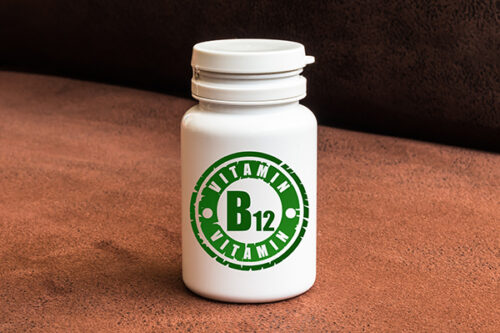Empowering Change in Early, Middle, and Late Life
Updated October 31, 2013
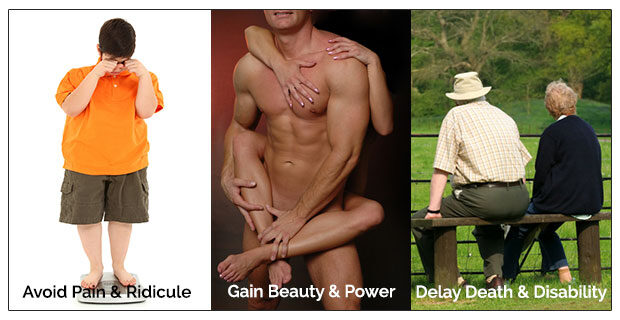
Our first book, published in 1979, was titled Making the Change. Back then Mary and I understood that health and appearance problems and solutions were dependent upon people changing how they ate. We also knew that the biggest changes would beget the biggest results. Our efforts over the past 34 years have been focused on helping people through these often-difficult times so 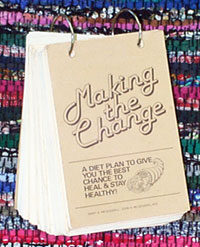 that they could see and feel the biggest results. The most empowering motivations for change have become clear to Mary and I, and they are presented below, organized into the three overlapping stages of life: Early, Middle and Late.
that they could see and feel the biggest results. The most empowering motivations for change have become clear to Mary and I, and they are presented below, organized into the three overlapping stages of life: Early, Middle and Late.
Humans are naturally motivated to approach pleasure and avoid pain; but the more powerful of the two forces is the desire to avoid pain. In general, people change when the inconvenience of being fat and sick outweighs the inconvenience of taking care of themselves. Because the intensity and kind of stimuli for deriving pleasure and avoiding pain varies with age, the motivations for change also vary.
The motivation during early life is to:
Avoid Pain & Ridicule
For most children, ridicule from classmates is a common and painful experience, and their personal appearance is most often the focus of that mockery. Watch your child groom before school: every hair must in place, and one new blemish can be sufficient reason to spoil the whole day. The pain of not feeling attractive is often sufficiently embarrassing enough for change to be considered. Poor performance in the classroom and on the playing field is another common source of ridicule. Athletic abilities are a direct consequence of a child’s body weight, musculature, and source of energy (their food).
Babies are born with an inherent drive to learn, and young children are naturally curious, but from birth through their high school years, they are at the mercy of their parents’ decisions about food. Once children leave home (at least part time) their welfare is at the will of their own choices. Experiences during these early years form attitudes and habits that last a lifetime.
The Top Ten Efforts to Help Children:
- Recognize their pain and talk to them about it. Is your child suffering from acne, obesity, abdominal pain, or joint pain? Are they having any undue emotional distress or low self-esteem?
- Parents are their children’s “best examples,” therefore parents must look and feel good themselves.
- Parents must provide appealing meals. Likely a well-seasoned minestrone soup will be better accepted than a plain baked potato.
- Explain to your children that being overweight is not normal (even if 30% of his or her classmates are overweight), and that acne is not only from hormone changes accompanying puberty, but is a result of how we eat. Explain that bowel movements are not supposed to be painful and last half an hour.
- Include your children in the shopping and preparing of meals. Teach them how to order when they eat out.
- Explore your child’s passions. If sports are important to them, then point out that long-distance athletes (runners, bicyclists, etc.) win because they are properly nourished with starches and not weighed down by junk food, animal food and fat.
- Bust the myth that eating protein (meat, poultry, fish, dairy, and eggs) builds muscle.
- Explore other benefits to improving their personal appearance (in addition to losing excess body fat). Oily skin and acne are consequence of vegetable oils and animal fats.
- Animal suffering and environmental catastrophe are topics that get children’s attention even more than topics of appearance and health.
- Make genuinely positive comments about your child as an individual (not how they look) and their accomplishments.
The motivation during midlife is to:
Gain Beauty & Power
Simply put, the rich western diet robs people of their beauty and power. Where have all the pretty women and handsome men gone? They’ve gone over to the dark side of dining. People who enhance their attractiveness by spending thousands of dollars on clothes, cars, makeup, perfumes, and plastic surgery have become unsightly—all for yellow and brown food that tastes of grease and salt, and smells repugnant. Lives are ruined by food to the same degree that lives are ruined by smoking, drinking alcohol, or becoming dependent on drugs; all destroyed by misguided choices. Too few people know that they can have all the health that money can’t buy by changing how they eat.
The Top Ten Motivators for Adults:
-
Sexual attractiveness depends upon your health and personal appearance. Health is attractive. Natural forces for continued existence of the individual and for species survival cause men and women to share their genetic material (eggs and sperm) with healthy mates, so as to produce the best offspring. Being overweight projects poor health, including a higher risk of heart disease, diabetes and cancer.
-
Physical attractiveness is more than being trim. Glowing skin results from improved circulation from a low-fat diet. Blemishes like acne, blackheads and whiteheads are caused by an oily, animal food-based diet.
-
Natural body odor should be sexually attractive, something the perfume industry has long known. The most repulsive source of bad breath and BO is animal foods.
-
Your attractive personal appearance and radiating health will serve as a motivation for making better food choices for your spouse, children, social contacts and fellow workers.
-
Healthy eating enhances reproductive fertility, in men and women.
-
Consuming meat and dairy foods lowers the quantity of semen and quality of sperm.
-
Consuming animal foods increases the risk of birth defects in offspring (for both mother and father).
-
America adores the slim and deplores the fat. Your chances of a successful career depend on your health and appearance. For example, obese people have less chance of attending college and even earn lower wages.
-
Daily physical activities and sport performance is enhanced by healthy eating.
-
Life-shortening illnesses such as breast cancer and heart disease are the result of eating the oily animal food-based American diet.
The motivation during late life is to:
Delay Death & Disability
Our “reproductive” and “productive” years are followed by our “retirement” years (mentally and physically). Our thoughts and fears turn to disability and death. One more day on the golf course or an hour playing ball with the grandchildren is worth almost any sacrifice, especially for people about to make the ultimate sacrifice. Yet people often say, “I do not fear death, I fear becoming disabled and dependent upon my children.”
The Top Ten Motivators for Seniors:
- Normal human lifespan is about 85 years. This means death from natural causes (not from wars, accidents or illnesses) would happen at this age. Natural life is limited by the number of times a cell will divide over a lifetime. A “natural death” results from heart failure. Ideally this terminal event occurs silently during sleep, as the weakened heart backflows blood into the lung, filling them with fluid. The actual average lifespan, worldwide, is much shorter, at about 67 years, because of largely preventable causes.
- Heart attacks and stroke are the leading cause of deaths worldwide. The rich western diet is the leading cause of death in the US.
- The average number of medications consumed by the elderly range from 8 to 13. Sick people take medications. If you eat well, and get a little careful exercise, and some sunshine, you should expect to remain drug-free for a lifetime.
- Your senses of sight, hearing, smell and taste will function for a normal lifespan (with only mild loss) by following the McDougall Diet.
- Impotence (erectile dysfunction) is caused by a lack of effective circulation of blood to the penis. Loss of sexual desire and performance is not simply a result of getting older, but rather what foods we choose to eat.
- Healthy women go through menopause without becoming afflicted with hot flashes, or mental and emotional sufferings. Menopause is a normal transition in life, not a disease.
- Osteoporosis is a disease primarily caused by a high-animal protein diet. However, bone mineral density (BMD) reflects reproductive status more than bone health. Women in their reproductive years store about two pounds of minerals for pregnancy and lactation. Beyond menopause there is no reason to maintain this extra depot of calcium, etc.—BMD naturally decreases.
- Degenerative (old-age) arthritis is a consequence of a lifetime of malnutrition due to the western diet. Joints should remain normally formed and functional for a lifetime.
- Dementia, including Alzheimer’s disease, is due to the western diet and aluminum poisoning. You should expect to remain mentally sharp throughout your later years.
- The elderly have much to contribute to society. Unfortunately, their decades of book learning and gainful experiences in business, music, art and politics are lost with retirement (age 65). The world cannot afford to lose two productive decades of every person’s life from wrong food choices.
If you do not find the proper motivation today then there is always tomorrow. The future holds many negative stimuli for those who fail to make the change. The results of continuing the western diet can be best summed up as accelerated aging. Although the clock cannot be stopped, youth can be preserved. It’s the Food®.
Recommended Articles
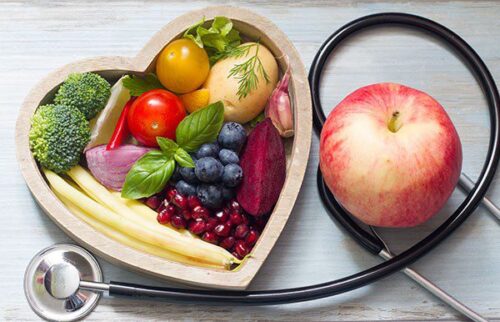
Three Essential Keys To a Healthy Diet
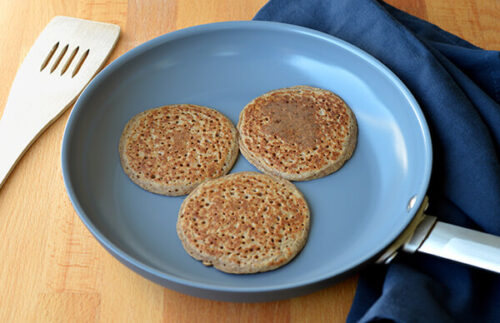
Cooking Without Oil
